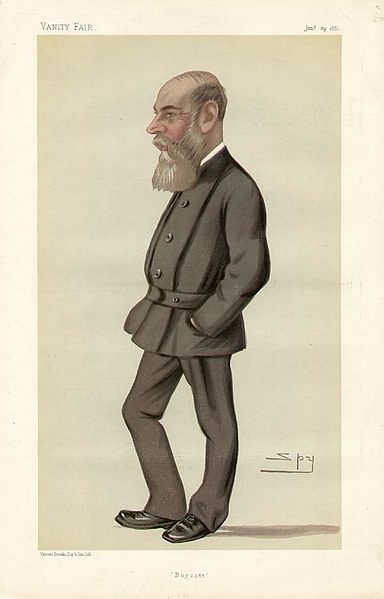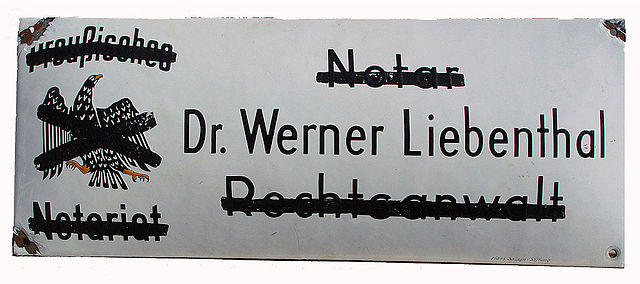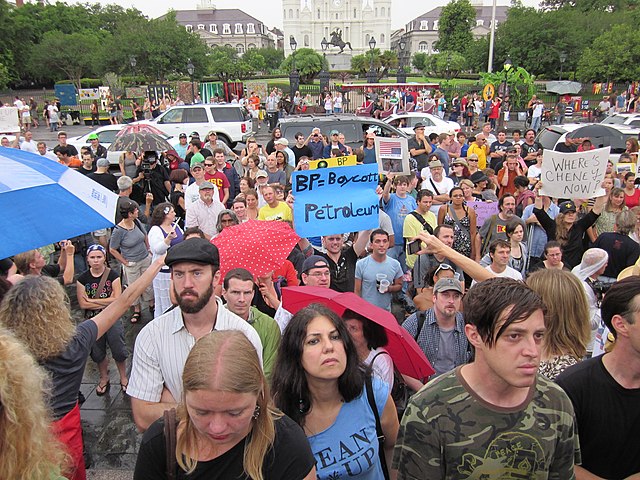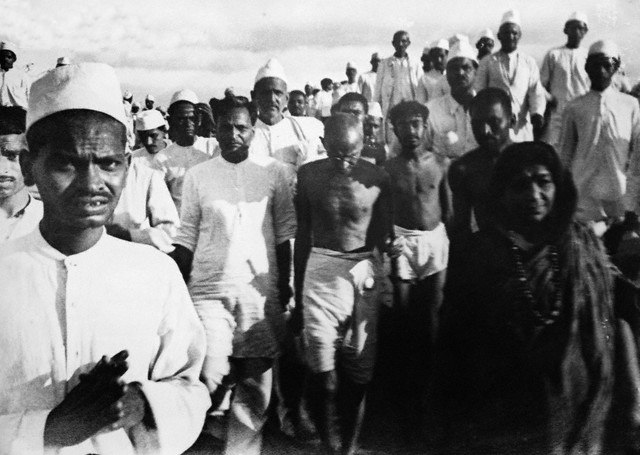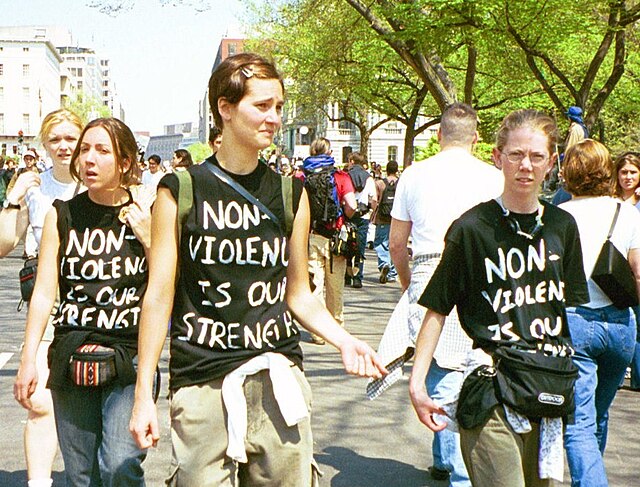A boycott is an act of nonviolent, voluntary abstention from a product, person, organization, or country as an expression of protest. It is usually for moral, social, political, or environmental reasons. The purpose of a boycott is to inflict some economic loss on the target, or to indicate a moral outrage, usually to try to compel the target to alter an objectionable behavior.
Vanity Fair caricature of Charles C. Boycott
Protesters advocating boycott of KFC due to animal welfare concerns
Nameplate of Dr. Werner Liebenthal, Notary & Advocate. The plate was hung outside his office on Martin Luther Str, Schöneberg, Berlin. In 1933, following the Law for the Restoration of the Professional Civil Service the plate was painted black by the Nazis, who boycotted Jewish owned offices.
Protesters advocating boycott of BP due to the Deepwater Horizon oil spill
Nonviolent resistance, or nonviolent action, sometimes called civil resistance, is the practice of achieving goals such as social change through symbolic protests, civil disobedience, economic or political noncooperation, satyagraha, constructive program, or other methods, while refraining from violence and the threat of violence. This type of action highlights the desires of an individual or group that feels that something needs to change to improve the current condition of the resisting person or group.
The Salt March on March 12, 1930
A demonstrator offers a flower to military police at a National Mobilization Committee to End the War in Vietnam-sponsored protest in Arlington, Virginia, on October 21, 1967.
A "No NATO" protester in Chicago, in front of police, 2012
Pro-nonviolence protesters at an anti-globalization protest

